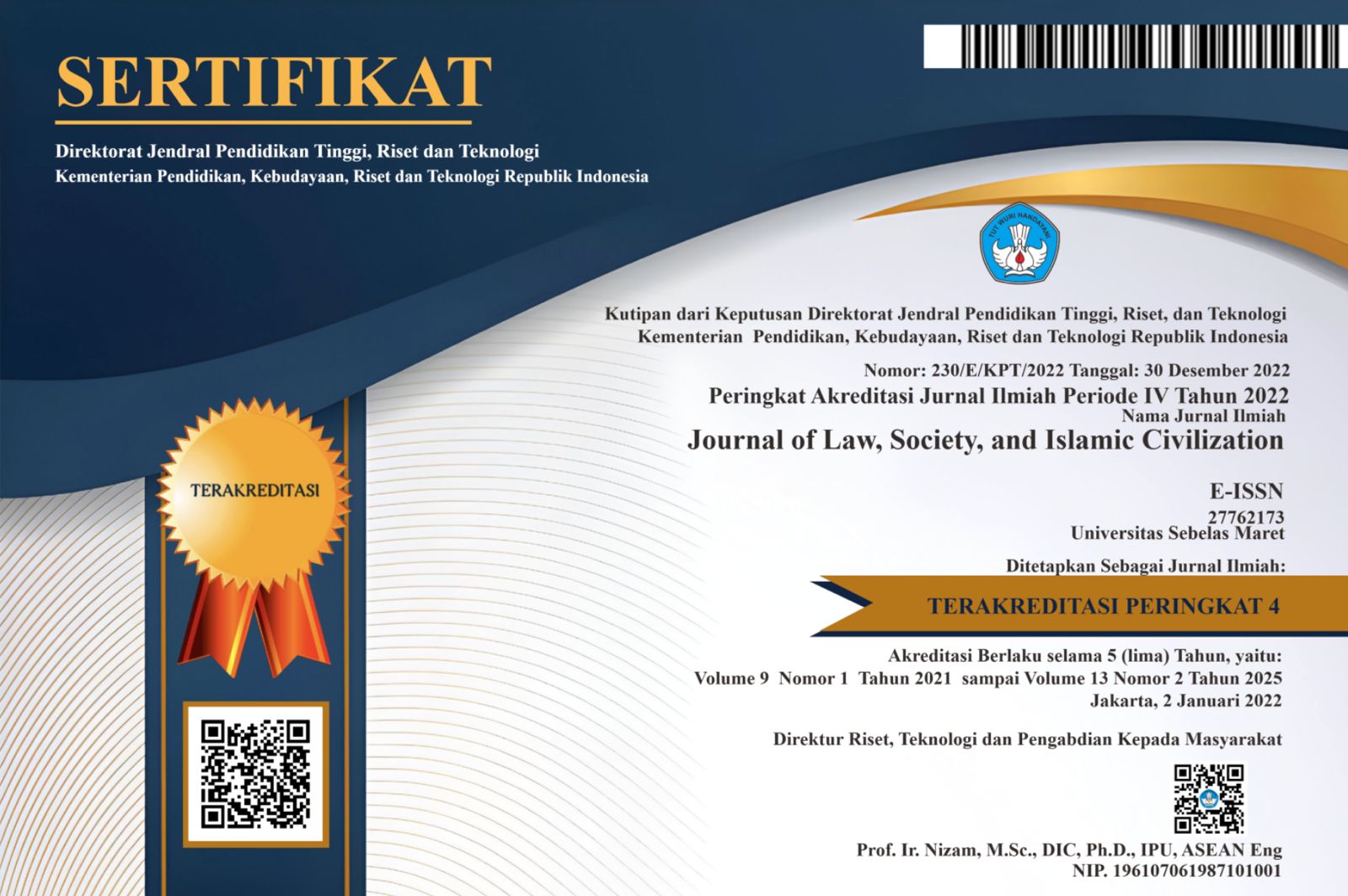Analysis of Employment Contracts after Implementation of Law of The Republic Indonesia No. 11 in 2020 Concerning Employment Creation (Case Study in Pt Perkebunan Nusantara XIII)
Abstract
Keywords
Full Text:
PDFReferences
Ferran, Elis. (1987). Further Deductions from Wages. The Cambridge Law Journal, 46(3), 412-414.
McLean, Hazel. (1990). Contract of Employment–Negative Covenants and No Work, No Pay. The Cambridge Law Journal, 49(1), 28-31.
Maldini, S., Setiawan, A. B., & Santoso, I. B. (2021). Perbandingan Undang-Undang Cipta Kerja Klaster Ketenagakerjaan dengan Undang-Undang Nomor 13 Tahun 2003 tentang Ketenagakerjaan mengenai Status Perjanjian Kerja Waktu Tertentu. Veritas, 7(2), 59–69.
Wheelwright, K. (2013). Bearing the economic loss of industrial action: the payment of striking employees under the Fair Work Act 2009 (Cth). Deakin Law Review, 18(2), 291-314.
Yuliani, A. (2017). Daya Ikat Pengundangan Peraturan Perundang-Undangan. Jurnal Legislasi Indonesia, 14(4), 429-438.
Bachtiar. (2019). Metode Penelitian Hukum. UNPAM Press. Tanggerang.
Illahi, M. F. (2021). Implikasi Pengesahan Undang-Undang Kerja Terhadap Hak-Hak Buruh Di Indonesia.
M.Thaib dan Ramin Nofrial. (2019). Penyelesaian Hubungan Industrial. CV Budi Utama.
Marzuki, P. M. (2017). Penelitian Hukum. Prenada Media Group.
Meria Utama dan Arfiana Novera. (2014). Dasar-Dasar Hukum Kontrak dan Arbitrase. Tunggal Mandiri.
Rawls, J. (2006). A Theory of Justice, Terjemahan: Uzair Fauzan & Heru Prasetyo. Pustaka Pelajar. Yogyakarta
Salim, H.S. (2019). Hukum Kontrak (Teori dan Teknik Penyusunan Kontrak) (14th ed.). Sinar Grafika.
Saputra, K. A. (2019). Modul Model Pedoman Penulisan. Solo: CV. Indotama. Solo.
Satrio, J. (2001). Hukum Perikatan. Bandung: PT Citra Aditya Bakti.
Soekanto, S. (2014). Pengantar Penelitian Hukum. Universitas Indonesia Press.
Subekti, R. (1995). Aneka Perjanjian. 10th ed. edited by P. C. A. Bakti. Bandung.
Susetyo, Heru. (2018). Percikan Pemikiran Makara Merah Dari FH UI Untuk Indonesia. Depok: Badan Penerbit Fakultas Hukum UI.
Uwiyono, Aloysius. (2018). Asas-Asas Hukum Perburuhan. Depok: PT Raja Grafindo Persada.
The 1945 Constitution of the Republic of Indonesia;
Civil Code of Republic Indonesia;
Law of The Republic Indonesia Number 13 of 2003 concerning Manpowership;
Law of The Republic Indonesia Number 11 of 2020 concerning Job Creation;
Government of The Republic Indonesia Regulation 35 of 2021 concerning Work Agreements for Certain Time, Outsourcing, Working Time and Rest Time, and Termination of Employment;
Government of The Republic Indonesia Regulation 36 of 2021 concerning Remuneration.Refbacks
- There are currently no refbacks.












